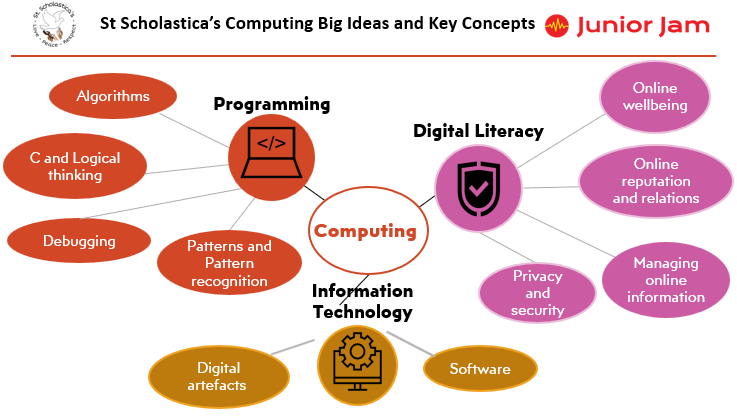"Computers themselves, and software yet to be developed, will revolutionise the way we learn." - Steve Jobs
Our Vision for Computing
At St Scholastica’s we believe that computing has become an essential subject in the overall development of a child. On the one hand it poses considerable challenges, on the other it offers fantastic opportunities. Our purpose is to help children stay safe online and to develop outstanding computer science skills. Being aware of cyberbullying, having healthy online relationships or managing well inappropriate information they may find online are some of the difficulties our students will face during the many different stages of their school life. However, developing their computer science skills, their digital literacy or their expertise managing information technologies will surely empower them to be successful in the global world of tomorrow. Our children have the right to enjoy learning safely as well as profiting from all the opportunities that technology and media can bring. We truly believe that providing our pupils with excellent digital skills can help them unlock their entire potential in their future careers.

